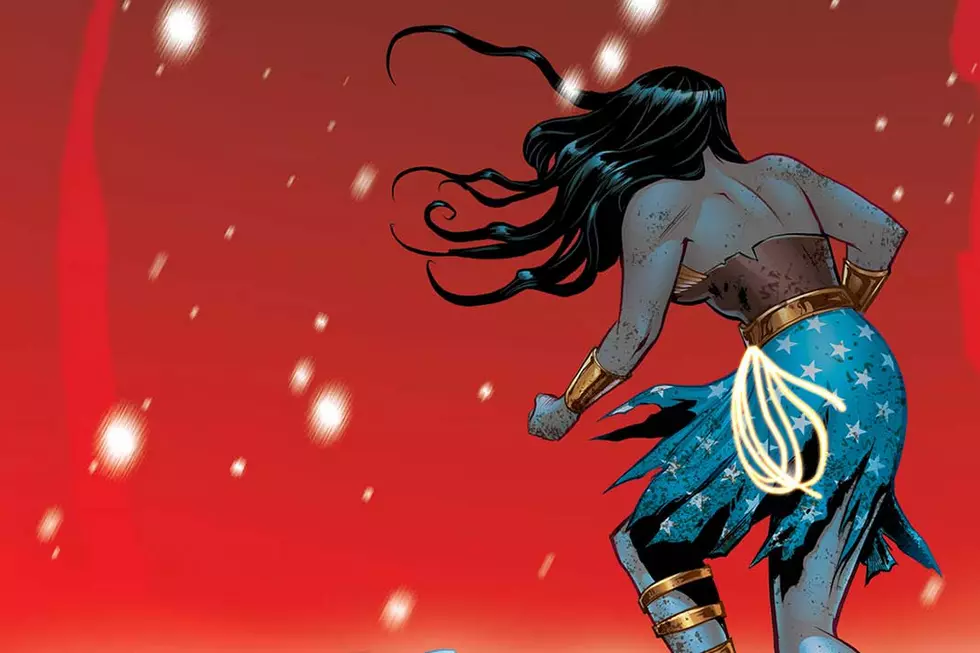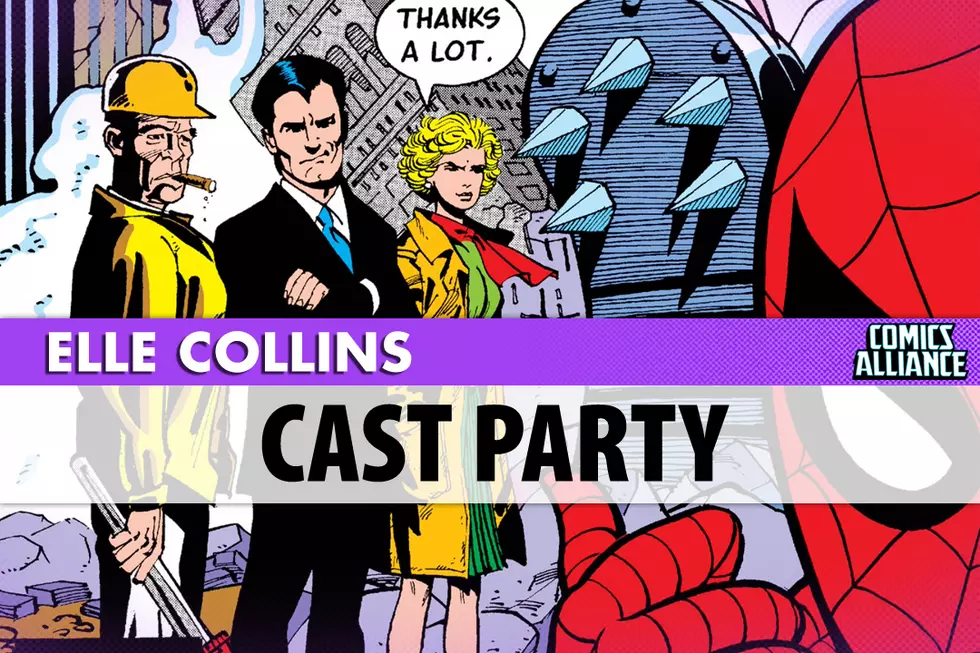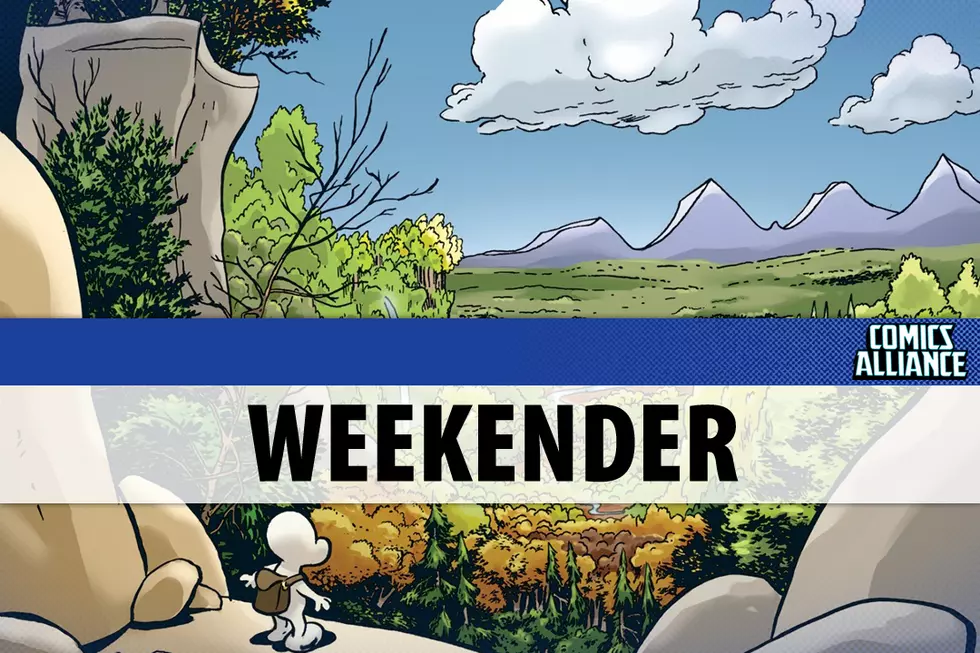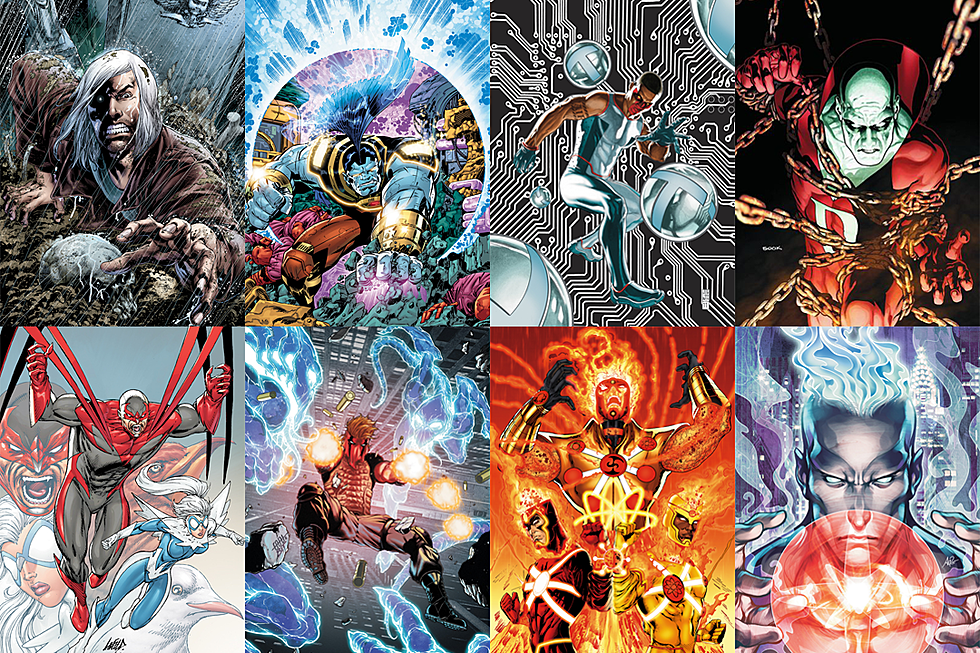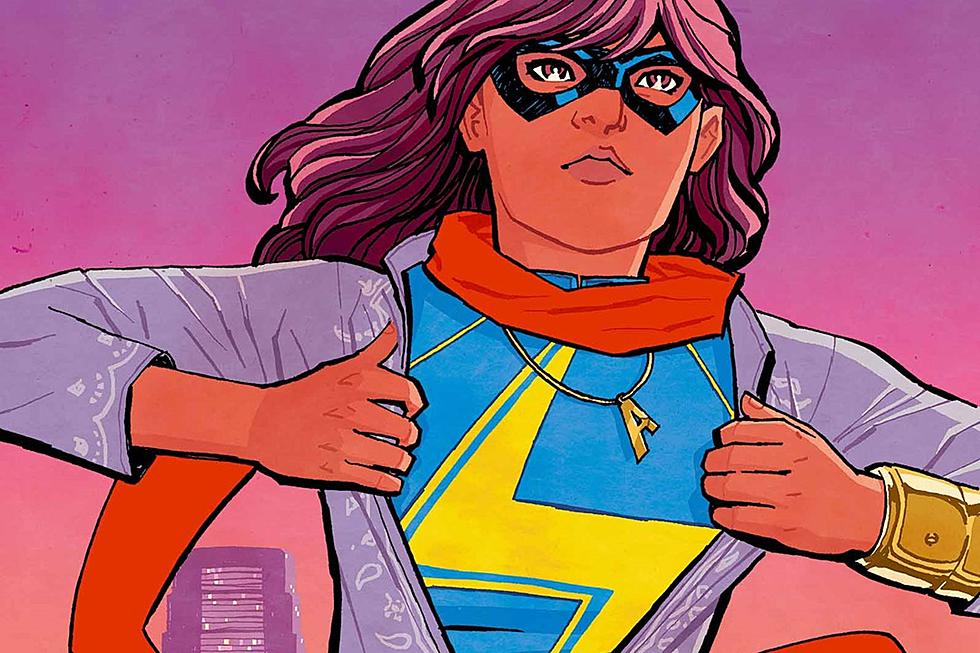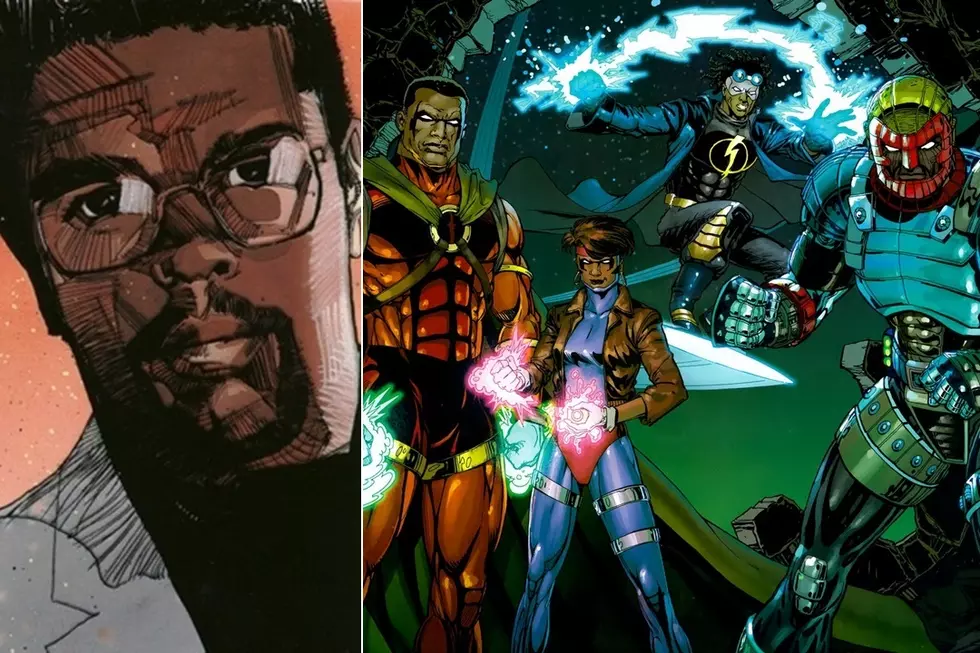![‘Static Shock Special': A Fitting Tribute to Dwayne McDuffie [Exclusive Preview]](http://townsquare.media/site/622/files/2011/05/staticshockspecial-preview-top.jpg?w=980&q=75)
‘Static Shock Special': A Fitting Tribute to Dwayne McDuffie [Exclusive Preview]

This Wednesday, Static Shock Special hits the stands, and it serves as a tribute to the late Dwayne McDuffie, co-founder of Milestone Media in the '90s. It features work from several Milestone vets, including Denys Cowan, J.H. Williams III, and John Rozum, plus a story by written by Felicia Henderson.
One of the best ways to pay homage to someone and their work is by following in their footsteps, and Static Shock Special looks to be a great example of the socially-conscious comics that Milestone published in the '90s. After the jump, check out our commentary on Milestone's methods and an exclusive preview of Static Shock Special, which hits stores tomorrow.
Milestone Media, founded in 1993 by Dwayne McDuffie, Denys Cowan, Michael Davis and Derek T. Dingle (with an assist from Christopher Priest), is often portrayed as a comics company that was first and foremost concerned with spotlighting racial diversity. In both the comics press and fan conversations, Milestone is treated as the go-to publisher when you got tired of watching burly white guys beat each other up. That's true, at least in part, but it's not an accurate picture of what made Milestone so compelling.
Icon believes that all someone has to do in order to succeed in life is work hard. He managed to do it, so why can't anyone else? The sentiment is a common one, and reminiscent of the philosophy advocated by prominent civil rights figure Booker T. Washington. But life isn't anywhere near that simple, and at one point in the story, Icon's sidekick Rocket quotes directly from the 1903 essay "The Talented Tenth," written another civil rights leader of the the same era, W.E.B. DuBois:
The Negro race, like all races, is going to be saved by its exceptional men. [I]t is the problem of developing the Best of this race that they may guide the Mass away from the contamination and death of the Worst, in their own and other races.
As you might guess from Icon's brief aside, DuBois and Washington were rivals. They battled over how black Americans were going to survive into the future. To simplify the story a bit, DuBois wanted the Talented Tenth to push forward and elevate the entire race, while Washington preferred to avoid confrontation and to ally with cooperative whites in order to overcome racism.
That's what I mean by social consciousness. If you're aware of a wide variety of perspectives or struggles or phenomena, then you're much more likely to write about them than someone else. It's not about racism, or anti-racism, or even black people in general. It's bigger than all of that. It's about the way that we all look at the world, and understand that there are seven billion possible points of view on planet Earth.
That's a lot of preamble for a five-page preview, but keep it in mind as you read. There's a long history of black men being incarcerated on falsified charges, shattering families into pieces and causing reverberations through the following generations. There are a few organizations that are dedicated to checking and double-checking the dubious convictions of men and women across the country, perhaps most notably the Innocence Project. Esquire recently did a piece on a man who spent almost thirty years in prison before being freed by the Ohio Innocence Project. It's heart-breaking, but exactly the sort of thing that we need to hear about, whether as genuine journalism or fictionalized and placed into a comic.
Henderson and Cowan's story in Static Shock Special looks like it's going to deal directly with that concept, and that's more than worthy of the Milestone name. It's not a black thing or a white thing. It's a story we can all relate to, from false accusations of varying severity to a family suddenly feeling incomplete. Milestone was always universal, and always smart. That's social consciousness.
As a final note, page three of the preview features a white board with a few names written on it. Billy Graham, Ron Wilson, Arvell Jones, Desmond Jones, Keith Pollard, and Ed Davis were the premier black comics artists of the '70s, and I believe that Denys Cowan interned or assisted them back in the day.
See? A little bit of knowledge reveals hidden layers and can deepen your appreciation of art.
Enjoy these exclusive five pages of Static Shock Special, out tomorrow featuring words by Felicia D. Henderson, pencils by Milestone co-founder Denys Cowan, inks by Rodney Ramos, Prentis Rollins, and John Stanisci, letters by Dave Sharpe, and colors by Lee Loughridge. The cover is courtesy of J.H. Williams III, who discussed his process here.






More From ComicsAlliance
![Christopher Priest, Denys Cowan, And Bill Sienkiewicz Team Up For ‘Deathstroke’ #11 [Exclusive Preview]](http://townsquare.media/site/622/files/2017/01/DS_Featured.jpg?w=980&q=75)
